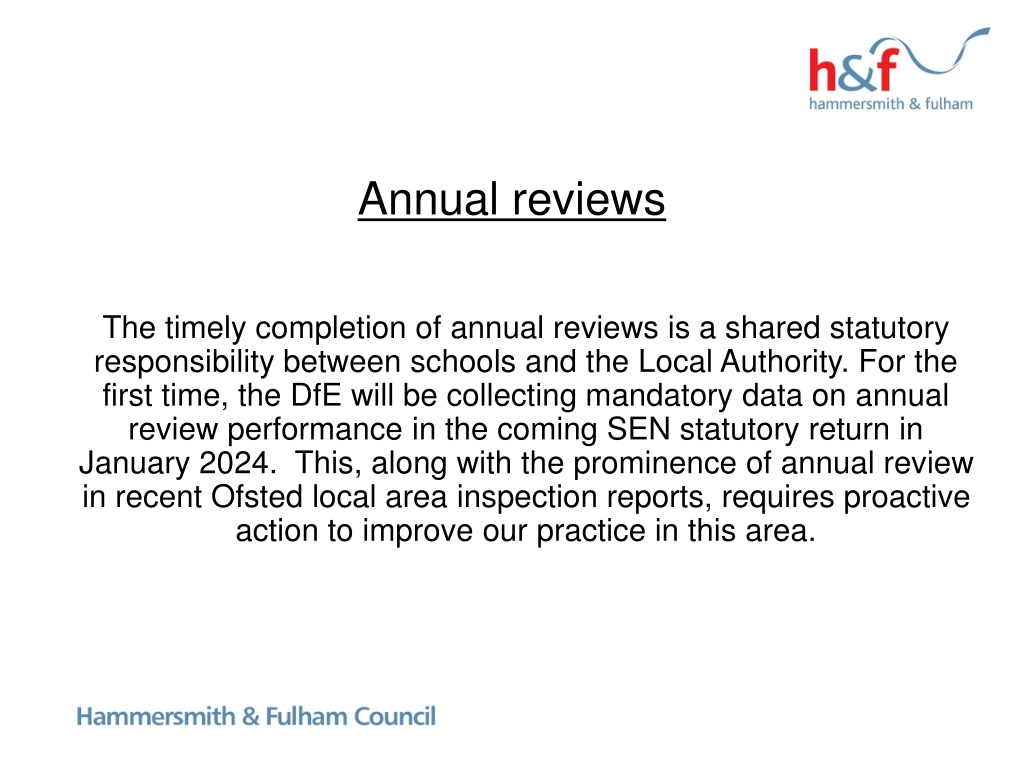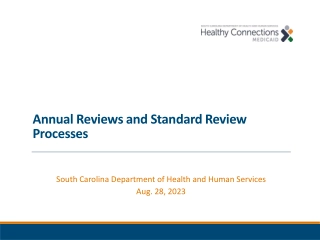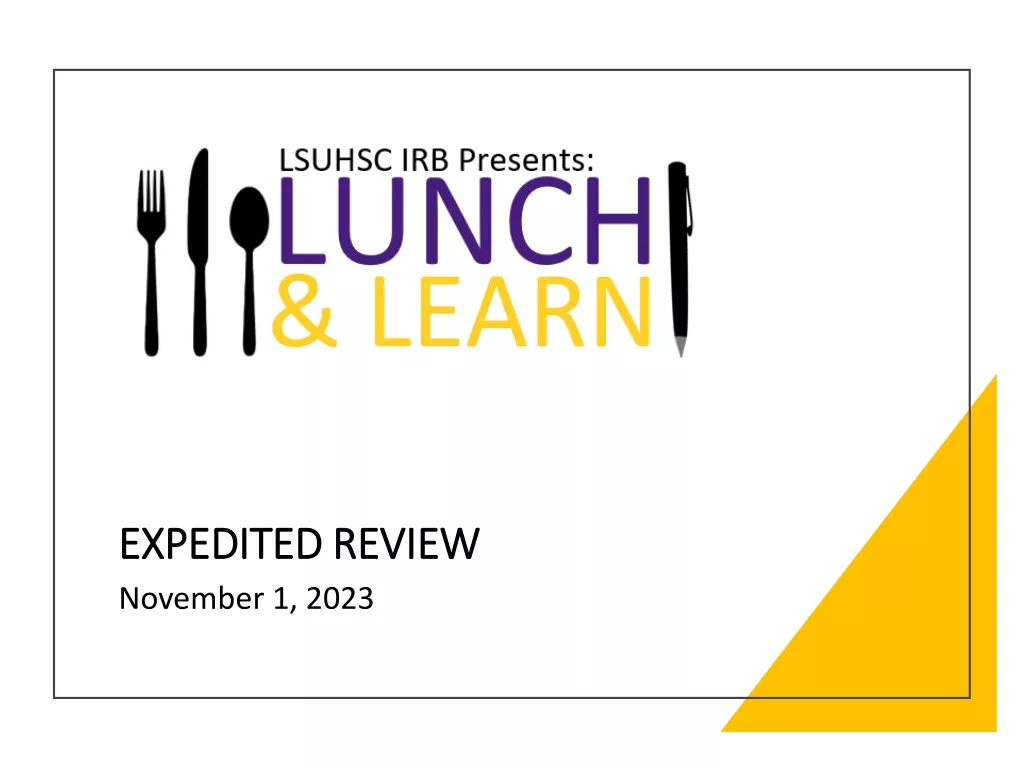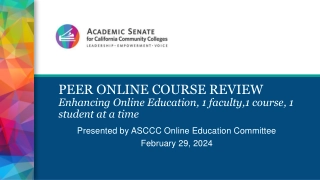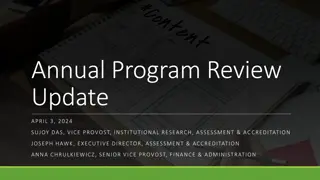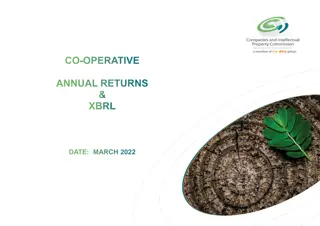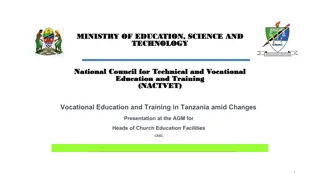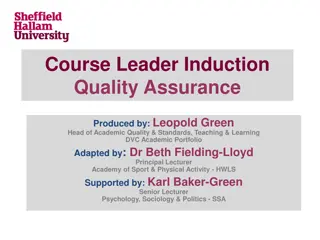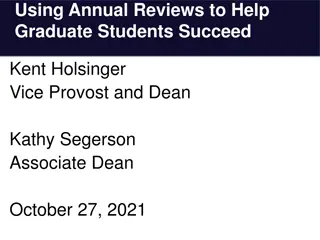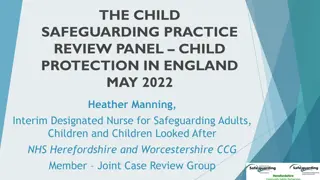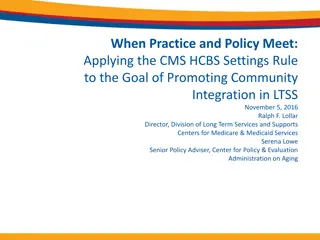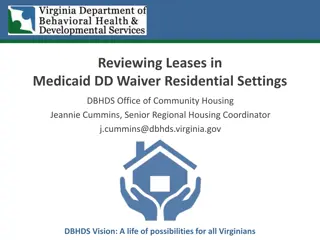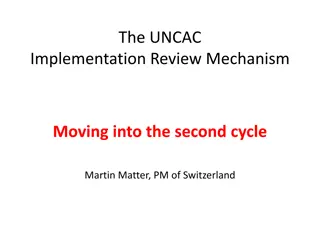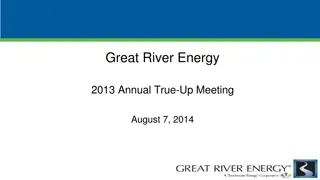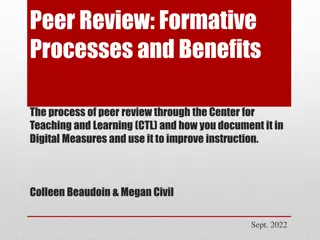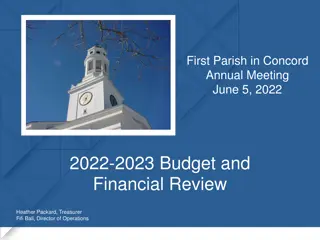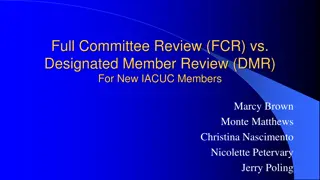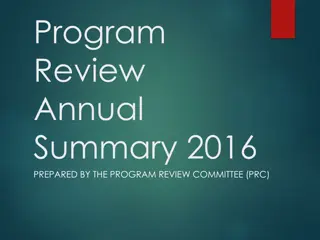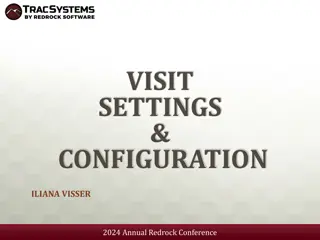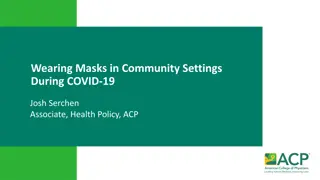Enhancing Annual Review Practices in Education Settings
Timely completion of annual reviews is crucial for children with special educational needs. Schools and Local Authorities share the responsibility for conducting effective annual reviews, as mandated by statutory requirements. This involves inviting relevant parties, assessing progress towards EHC plan outcomes, and making necessary adjustments. The Local Authority plays a key role in deciding on plan amendments within a specified timeframe. Efforts are underway to improve annual review practices, such as rebalancing caseloads, appointing review coordinators, implementing a case management system, and providing guidance to schools.
Download Presentation

Please find below an Image/Link to download the presentation.
The content on the website is provided AS IS for your information and personal use only. It may not be sold, licensed, or shared on other websites without obtaining consent from the author. Download presentation by click this link. If you encounter any issues during the download, it is possible that the publisher has removed the file from their server.
E N D
Presentation Transcript
Annual reviews The timely completion of annual reviews is a shared statutory responsibility between schools and the Local Authority. For the first time, the DfE will be collecting mandatory data on annual review performance in the coming SEN statutory return in January 2024. This, along with the prominence of annual review in recent Ofsted local area inspection reports, requires proactive action to improve our practice in this area.
Annual Reviews Who does what? Schools responsibilities The child s parents or young person, a representative of the school or other institution attended, a local authority SEN officer , a health service representative and a local authority social care representative must be invited and given at least two weeks notice of the date of the meeting. Other individuals relevant to the review should also be invited, including youth offending teams and job coaches where relevant. The school must seek advice and information about the child or young person prior to the meeting from all parties invited, and send any advice and information gathered to all those invited at least two weeks before the meeting. The meeting must focus on the child or young person s progress towards achieving the outcomes specified in the EHC plan, and on what changes might need to be made to the support that is provided to help them to achieve those outcomes, or whether changes are needed to the outcomes themselves. Children, parents and young people should be supported to engage fully in the review meeting. The school must prepare and send a report of the meeting to everyone invited within two weeks of the date of the meeting. The report must set out recommendations for any amendments required to the EHC plan and should refer to any differences between the school, parents, professionals or other institution s recommendations at the meeting.
Annual Reviews Who does what? LA Responsibilities Within four weeks of the review meeting, the LA must decide whether it proposes to maintain the EHC plan as it is, amend it, or cease to maintain the plan. They must then notify the child s parent, young person and the school or other institution attended. If the LA decides to make amendments, it must issue the amended EHC Plan as quickly as possible, but within 8 weeks of the original amendment notice. The annual review process must be concluded within a year of when the first EHC Plan was issued or when the last annual review took place.
What is the LA doing to improve annual review practice? Rebalanced EHC coordinators caseloads to support the delivery of timely and quality statutory casework Appointed an EHC Annual Review coordinator to support the proactive coordination of reviews with education settings Invested in a case management system to support statutory casework Developed a suite of performance management reports to support the proactive management of statutory casework, including annual reviews. Develop annual review guidance for schools - Annual reviews for EHCPs | London Borough of Hammersmith & Fulham (lbhf.gov.uk) Placing an auto-reply message on the AR inbox (this will be live from Monday!)
Annual Reviews top tips SEND COP - 9.193 - EHC plans are not expected to be amended on a very frequent basis. The annual process is only concluded once the LA has issued a decision on the annual review (4 weeks after the review meeting). This means the annual review meeting must take place by the 11th month (at the latest) so that the LA can confirm the decision. If you need to bring forward an annual review because of significant concerns regarding a C/YP we would recommend using the term early review rather an emergency review. In these cases the normal statutory process must be followed i.e 2 weeks' notice and gathering of relevant information prior to the annual review. The annual review is a review of the EHC Plan. This should be the focal point of the discussion and should be referenced and discussed as part of the meeting.
Annual Reviews top tips It is extremely useful when you use track changes or a key to identify the changes you wish to have changed to the EHC Plan. For example strikethrough text that should be removed from the EHC Plan and new information to be added in green. which require amendment Add new parts
